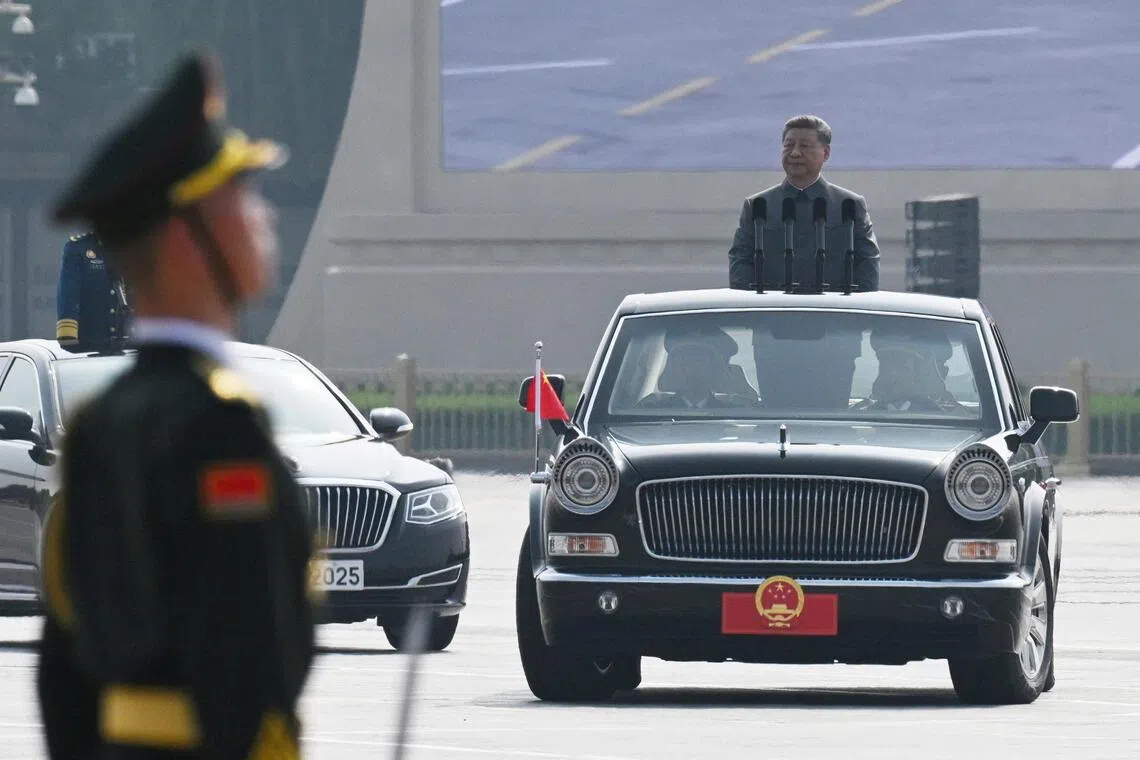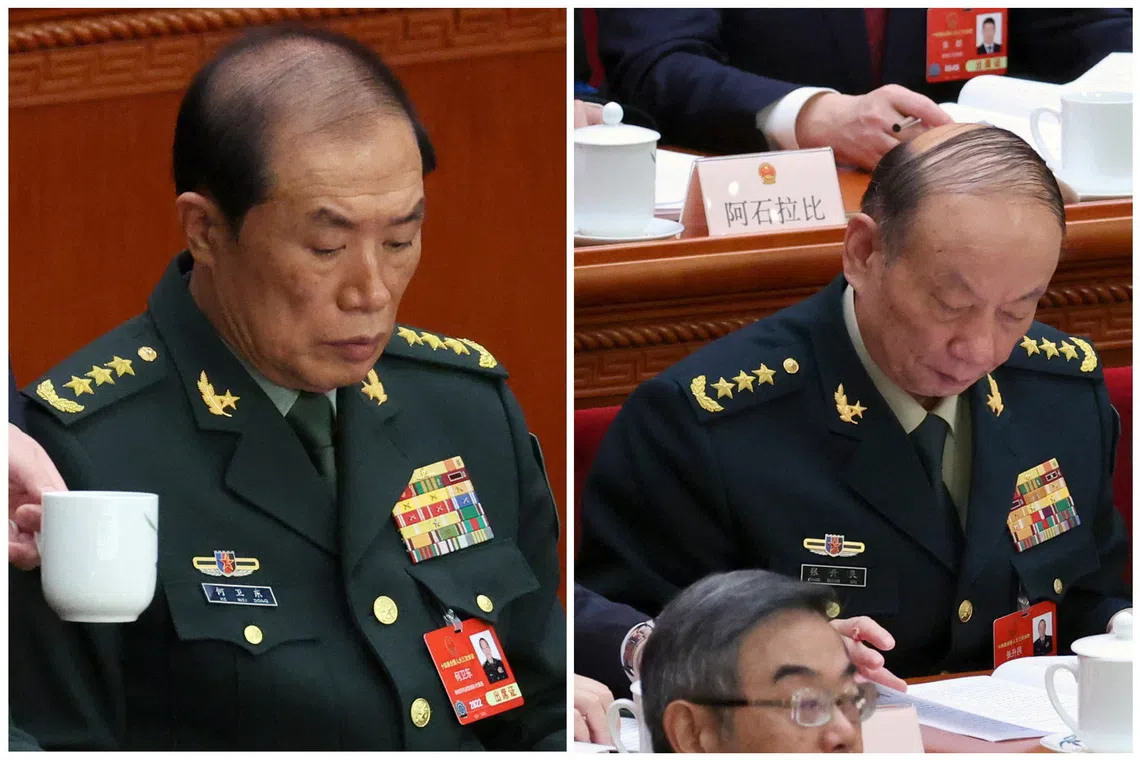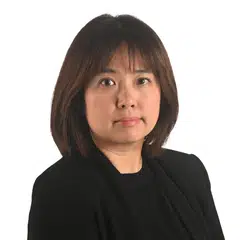Xi shows firm grip as party plenum ends with minimal reshuffle
Sign up now: Get insights on Asia's fast-moving developments

Chinese President Xi Jinping at a military parade marking the 80th anniversary of the end of World War II in Beijing on Sept 3.
PHOTO: AFP
- Xi Jinping maintains firm control after the Fourth Plenum with minimal leadership changes, despite online speculation of political struggles.
- General Zhang Shengmin was promoted to CMC vice-chairman, replacing He Weidong, amid an ongoing anti-corruption purge within the military.
- The undersized CMC and absence of new Politburo members highlight Xi's dominance and intention to stay beyond his current term.
AI generated
BEIJING - The Communist Party of China (CPC) carried out minimal leadership reshuffling at a major four-day conclave that ended on Oct 23, underscoring President Xi Jinping’s firm grip on power despite a swirl of online speculation suggesting otherwise.
In a communique released after the meeting, known as the Fourth Plenum, the only notable personnel movement announced was the promotion of General Zhang Shengmin to become Mr Xi’s deputy at the Central Military Commission (CMC), the party’s top military command.
He replaced former general He Weidong, who was expelled from the party and the military
Mr Xi chairs the commission as China’s de facto commander-in-chief.
The body began the current five-year term in 2022 with seven members, but its ranks have since shrunk to four after Mr Xi launched a sweeping anti-corruption purge of the military
Apart from former vice-chair He, those removed included then top political officer of the People’s Liberation Army Miao Hua
The plenum is an occasion when the party’s Central Committee, comprising about 200 voting members, can decide the composition of the CMC.
In principle, it could have promoted three new members to restore the body to full strength. Instead, it elevated Gen Zhang from CMC member to vice-chairman.
Gen Zhang will retain his portfolio overseeing the military’s disciplinary affairs. He is believed to have played a key role in the investigations that led to a purge of officers unprecedented in its scale.
According to the communique released on Oct 23, the Central Committee reviewed a report on how nine senior military officers had “violated laws and party discipline”.
Mr Drew Thompson, a senior fellow at the S. Rajaratnam School of International Studies, said: “Seeing such an unprecedented number of names in one place really hits home how impactful Xi Jinping’s purge has been.
“It is telling that Zhang Shengmin has been elevated within the Central Military Commission, but no one has been named to fill the vacant billets of the regular members. The undersized commission means that more power remains in Xi’s hands.”

China’s former No. 2 general He Weidong (left) has been replaced by General Zhang Shengmin.
PHOTO: REUTERS
As is often the case before and during high-level party meetings where sensitive personnel decisions are made, the internet had buzzed with wild speculation about Mr Xi’s grip on power.
When the Defence Ministry announced on Oct 17 that the nine officers – including General He and Admiral Miao, both seen as close to Mr Xi – had been expelled, it further fuelled unfounded rumours of a political tussle attempt by Mr Xi’s other deputy, CMC vice-chairman Zhang Youxia.
These rumours were put to rest when, right on cue at 7pm, state television aired footage of Mr Xi presiding over the plenum and of all other leaders applauding him at the meeting’s close.
Mr Chen Daoyin, a former professor of Chinese politics and now an independent political commentator, noted that the absence of new faces in both the CMC and the Politburo – the party’s powerful body of nearly two dozen members – attested to Mr Xi’s dominance within the party.
“Any new entrant to these halls of power would spark speculation that he could be Xi’s successor. If Xi intends to stay on beyond this term, he would not want a new centre of power to form around anyone else,” Mr Chen said.



